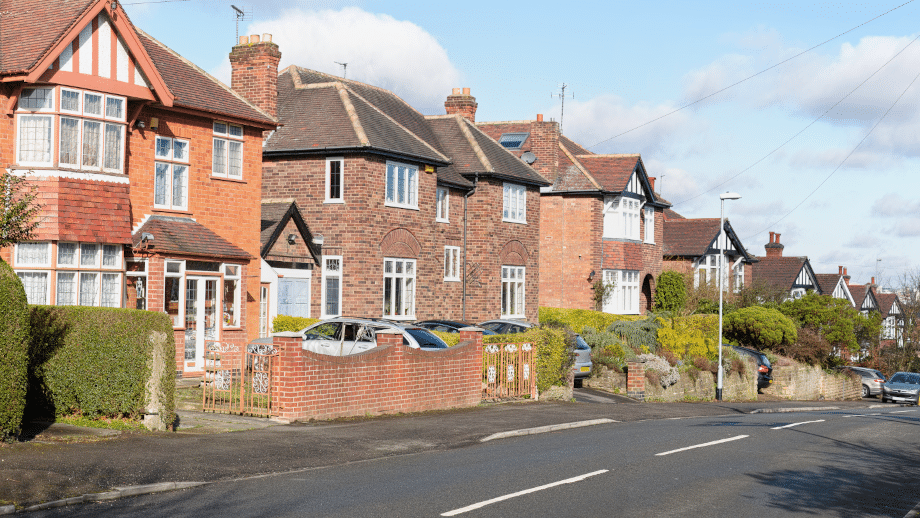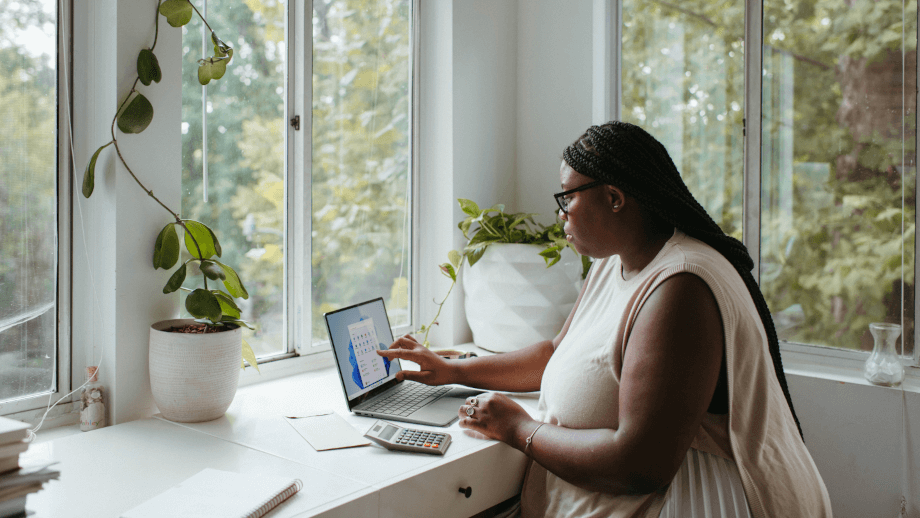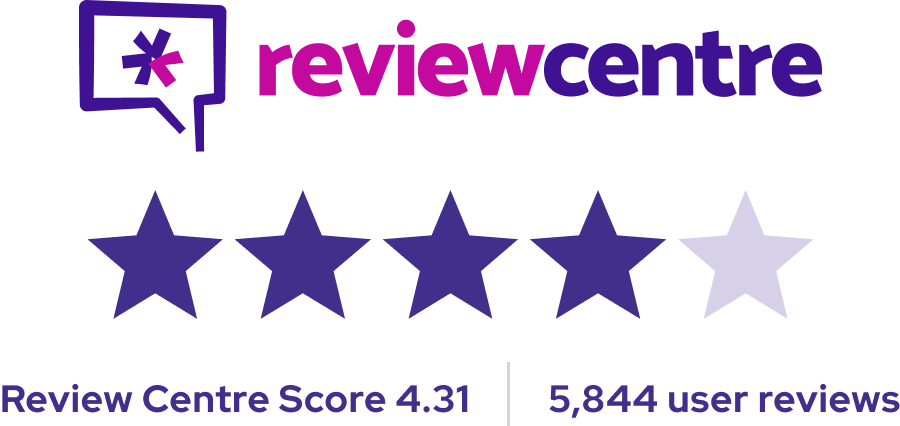A Guide to Leaving Your House Empty
Whether you’re waiting on a property sale or probate, dealing with flood damage, or simply taking an extended holiday, there are plenty of reasons you may need to leave your home empty for a while.
However, without anyone there to keep an eye on it, your unoccupied property could also be more susceptible to certain risks.
What are the risks of leaving a home unoccupied?
Without a homeowner or tenant in situ, houses are more susceptible to break-ins, vandalism, degradation, fire, and many more potential hazards. This is because nobody is there to spot the early signs and take steps to prevent them from causing further damage.

For example, if you were to spot an unwanted intruder on your property, you’d call the police immediately. Or if you noticed a burst pipe, you’d call out an emergency plumber to fix the problem before it floods your home.
When homes are empty – especially for longer periods, such as 30 days or more – these risks are more likely to go undetected potentially cause irreparable damage.
How long can a house be left unoccupied?
Exactly how long you can leave your home empty before you’ll need to tell your insurance provider will depend on who handles your policy. At Homeprotect, we need to know if your property is unoccupied for more than 30 consecutive days or more so that we can factor these increased risks into your policy terms.
How to prepare an empty home to reduce the risk of fire, water hazards and theft
The most effective way to reduce the risks associated with an empty home, such as fire, flooding, and theft, is to check on the property as often as possible. This could be you if you’re still staying locally, a friend, family member or neighbour.
This not only deters any potential intruders who may be scouting the property but also reduces the risk of leaking pipes or fire hazards from going unnoticed.
However, there are plenty of other practical tips for reducing these risks, including:
- Unplug and switch off – all electrical appliances, as well as water and electrical supply to the property.
- Shut and lock – all doors, windows, and other potential entry points to the property. If someone can gain access without signs of forced entry, a claim for theft may be invalid.
- Inspect the property – for signs of damage to pipes, gutters, roofing and more. Any potential fire or flooding hazards must be addressed before vacating the property.
- Extra layers of security – secure all valuables in a safe or locked container as an extra precaution if the worst happens.
How to secure an empty property
With unoccupied properties posing a greater break-in risk, home security is critical. This doesn’t just mean locking doors and windows but taking extra steps to deter thieves and prevent those who try to gain access.
Here, Homeprotect shares its top tips for securing your empty home:
- Reinforce entry points – with security bars or window grills to prevent entry from brute force.
- Keep it light – deter intruders looking to break in under the cover of darkness by installing motion-activated lights around the property.
- Seek out weak spots – such as garages, sheds, sliding doors and cat flaps. These should also be reinforced or covered to prevent unwanted access.
- Hide heavy objects – opportunist intruders may look for nearby objects to assist their break-in – don’t give them a helping hand!
Security tips for properties unoccupied for 1 week
- Inform a trusted friend or neighbour or estate agents of your plans.
- Check that windows and doors are securely locked.
- Set up security cameras or a monitored alarm system if you plan on leaving the property for longer periods of time. The sight of a security camera alone can often deter potential intruders from trying their luck.
Security tips for properties unoccupied for 1 month
- Upgrade old locks and doors if you plan on leaving the house unoccupied for further months. Consider replacing worn or rusted doors, locks or frames with sturdier products like solid core doors, deadbolt or smart locks and reinforced metal frames.
Security tips for properties unoccupied for 3-6 months
- Use smart home devices to monitor the property.
- Leave spare keys with a trusted person, estate agent or property management company.
Security tips for properties unoccupied for 6 months-1 year
- Install a high-tech security system.
- Have the house regularly inspected and keep a point of contact for emergencies.
Unoccupied home checklist
Homeprotect knows that leaving your home, whether for a week or a year can
feel a little daunting. That’s why we’ve created this handy checklist to help you
feel more at ease before you go.
The guide is broken into time frames: starting from one week and going all the
way up to a year.
Each section builds on the one before it, so if you’re going away for 3–5 months,
be sure to complete the tasks listed under 1 week, 1 month, and 3–5 months.
1-2 Weeks unoccupied
- Arrange for mail/packages to be held or collected.
- Unplug all electronics to reduce fire risk.
- Empty the fridge and freezer to avoid unpleasant odours.
- Set timers for lights.
- Set thermostat to a moderate temperature to keep costs down and to prevent pipes freezing over in winter months.
- Check smoke detectors and batteries.
- Remember to make plans for your pets and plants to be taken care of.
- Ask neighbours to keep an eye out.
- Making sure nothing is left running or on standby.
- Stop or redirect mail.
- Consider turning off the water supply to prevent leaks.
- Clean the house to avoid musty smells.
1 month unoccupied
- Arrange for someone to run the water as things like Legionnaires disease can begin to fester in the pipes.
- Let your home insurance provider know what your plans are with the house going forward (after 30 days with Homeprotect) — they may need to amend your policy terms.
- Utilities may need to be adjusted (e.g. water, electricity) to save you money on bills while you’re away.
- Secure outdoor furniture.
- Inform local council if you plan on leaving your house empty for 30 days or more. You may be eligible for council tax discounts but may have to pay an extra premium.
- Make sure a friend or family member visits periodically.
3-6 months unoccupied
- Hire a property management company if necessary.
- Regular check-ins are necessary, especially if the area experiences extreme weather.
- Consider draining pipes or turning off water at the main valve to prevent freezing. Switch frost protection mode on if it’s winter.
- Arrange for all mail to be redirected to a new address so you can keep up-to-date with important mail.
- Take down any valuable items or keep them in a safe location.
- Consider installing a security system or securing any weak spots in the home — like cat/dog flaps, sliding doors or sheds.
6 months-1 year unoccupied
- Consider renting or subletting the property to avoid stagnation.
- Turn off all utilities (gas, electricity, water) completely.
- Secure valuables in a safety deposit box.
- Make sure the house remains well-maintained to avoid damage.
- Keep the front garden and driveway cleared to prevent overgrowth.
- Set up remote monitoring or have someone check the house regularly. This can be done through a property management company, estate agent or by a friend or family member you trust.
The above security tips and checklist can be downloaded.
Tax considerations
In most situations where homes are left empty – like an extended holiday or even landlords looking for new tenants – the tax status of the home and implications on the homeowner won’t change.
For example, you’ll still have to pay council tax on the property, even while it’s empty – apart from in a few specific circumstances, where a local council may agree to discount the sum.
In fact, in some instances, you may even be required to pay greater property taxes on an empty home.
For example, if your property has been empty for over two years, it may be subject to a council tax ‘premium’. This is typically applied to second homes that are unoccupied for years at a time, rather than homes left empty for a month or two.
Homeprotect provides empty home insurance to keep you covered while you take a holiday, find a new tenant and more.

Get a home insurance quote online
Get a quote online in less than 10 minutes*
Your Questions Answered
Whether or not you drain the water supply to your home before vacating it may depend on the duration of absence and the time of year. While stopping the water supply can prevent risks like burst pipes and flooding, it can also leave your home susceptible to cold temperatures and the negative effects, such as dampness and mould. If you are leaving the property for a short period during the summer, it may be sensible to drain the water supply, while this may not be the best idea when leaving a property for a whole winter.
Whether or not you leave the heating on in an empty home will depend on how long the property is empty and the time of year. During the summer, it may not be necessary to leave home heating on. However, during the winter, heating the home permanently at a low (but above freezing) temperature or on a timer can help prevent pipes from freezing and the property from suffering dampness or mould.
When a home is left empty for years, it means that no one is around to regulate the temperature and act on the early signs of damage. As a result, long-term unoccupied properties are more susceptible to damp, paint peeling, pests and even wear and tear to the building itself. Plus, these visual signs of neglect also make the property an attractive target to potential intruders.
Leaving a home empty for years also has implications for mortgages and home insurance – which may be invalidated or retracted if the property is unoccupied for a certain period.
Yes, most empty properties will still require the homeowner to pay council tax. However, you may be able to apply for an exemption in a few specific instances. This includes properties that have been unoccupied for two or more years, those undergoing a probate process, instances in which the owner is in the hospital or a care home and if the property cannot be lived in by law.
See the full list of empty property council tax regulations and exemptions on the government website.





